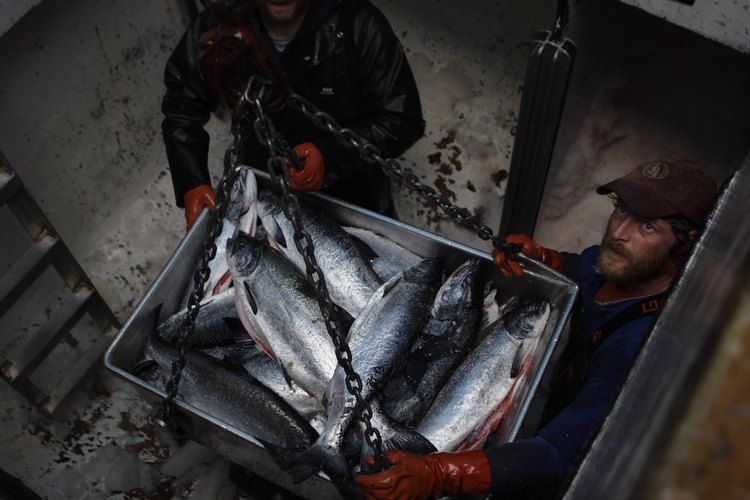
Listen to the Story on All Things Considered

Listen to the Story on All Things Considered
Post by Richard Harris, The Salt at NPR Food (5/15/13)
Climate change is gradually altering the fish that end up on ice in seafood counters around the world, according to a new study.
"The composition of the [global] fish catch includes more and more fish from the warmer areas, and cold-water fish are getting more rare, because the temperatures are increasing," says Daniel Pauly at the University of British Columbia, a co-author of the study.
As oceans warm — a result of climate change — fish maintain their preferred water temperature by moving away from the equator and toward the poles.
So, for example, people in Denmark are now encountering swordfish, which you'd normally find in the Mediterranean and off the coast of Africa.
"In British Columbia, where I live, we have Humboldt squid, giant squid from Mexico," Pauly says. "They eat all the herrings and stuff, and people don't know them. They are stranded on the beach, and people think they are sea monsters."
And fishermen have scuffled over Atlantic mackerel quotas, as the fish moves north to new grounds around Iceland.
The new study in Nature shows these anecdotes aren't simply a fluke. Data from fish catches from around the world show it's happening everywhere the ocean is warming — which is just about everywhere.
This trend isn't obvious at American fish counters. That's because 80 percent of our seafood is imported, and we don't know whether fishermen are catching our swordfish in the tropics or the North Atlantic. Also, half of all seafood is now produced in enclosures — not caught in the wild.
But if it's invisible to us, that's not the case for many people who rely on their local fisherman for protein.
"In the tropics, there are lots of developing countries' fisheries where their ability to adapt to changes in the resources is much lower," says William Cheung, the report's lead author. Like Pauly, he's at the University of British Columbia's Fisheries Center in Vancouver.
The paper documents a migration of some species out of the tropics, as they seek cooler waters. But there are no fish to replace the ones that are leaving. As a result, "these fisheries in the tropics will be most vulnerable to climate change impacts," Cheung says.
The United States will gradually feel the effects as well.
"Imagine a reef fish that is driven by temperature into North Carolina or the Delaware coast," Pauly says. "That reef fish will not find reefs. It's like you having to move, but you cannot take your furniture with you, or your house. That is the problem."
Many fish will have a hard time adapting to this very rapid change, he says.
Mark Payne at the National Institute for Aquatic Resources in Denmark was not involved in the research, but he's impressed by the result.
"This is suddenly a wake-up call," he says. "It's a strong suggestion that climate change is here. It's real, and it's really starting to affect what we catch and, therefore, what we eat."
Copyright 2013 NPR.